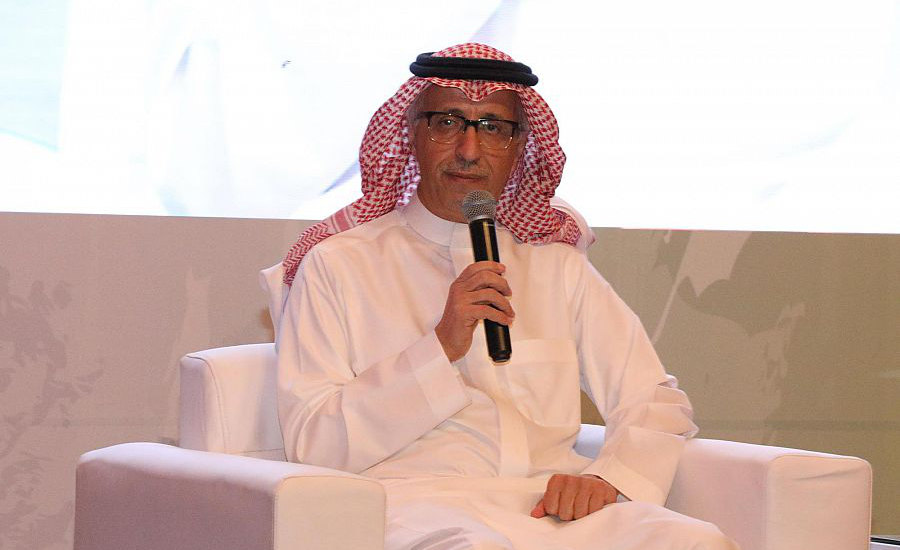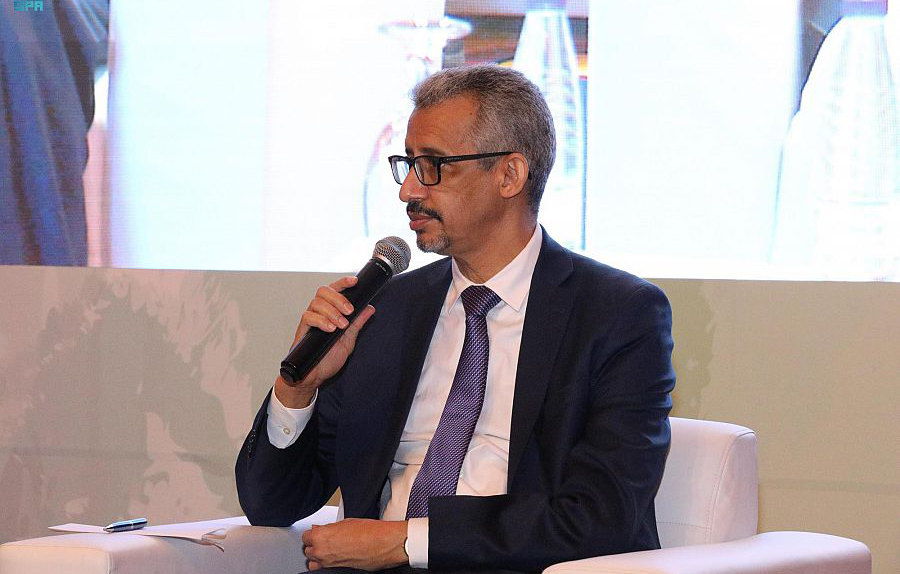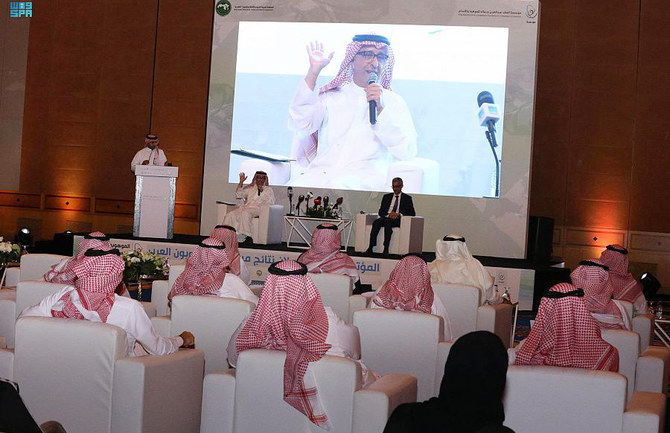JEDDAH: The King Abdulaziz and His Companions Foundation for Giftedness and Creativity (Mawhiba) and the Arab League Educational, Cultural and Scientific Organization (ALECSO) on Saturday announced the results of the first edition of the Gifted Arabs initiative, which aims to promote innovation by developing Arab talent.
The announcement was made at a press conference, held at the Hilton hotel in Jeddah. It was attended by Mawhiba Secretary-General Dr. Saud bin Saeed Al-Mathami, ALECSO Director-General Prof. Mohamed Ould Amar and Hani bin Moqbel Al-Moqbel, chairman of the executive council at ALECSO.
In a speech, Al-Mathami expressed his gratitude to Saudi Culture Minister Prince Badr bin Abdullah bin Farhan, also chairman of the Saudi National Committee for Education, Culture, and Science, for supporting the initiative through various national, regional, and international educational, cultural and scientific organizations, which resulted in refining the talents of youth in the Arab world.
He added that young talented people will contribute to achieving 2030 sustainable development goals, which will enhance the Arab region’s position in the world.
HIGHLIGHT
Mawhiba Secretary-General Dr. Saud bin Saeed Al-Mathami said that 230 Arab students scored the highest marks in the 2021 Gifted Arabs initiative. Of that number, 57 students were from Saudi Arabia, two from the UAE, 34 from Bahrain, eight from Qatar, 30 from Oman, 12 from Palestine, 20 from Jordan, 15 from Iraq, two from Yemen, 15 from Tunisia, nine from Mauritania and 26 from Libya.
Al-Mathami thanked the executive council of ALECSO, its member states and the ministers of education of the participating countries for their support of the initiative and their keenness on its success, which succeeded in serving Arab citizens.
He said that 230 Arab students scored the highest marks in the 2021 Gifted Arabs initiative, representing 12 countries.
Of that number, 57 students were from Saudi Arabia, two from the UAE, 34 from Bahrain, eight from Qatar, 30 from Oman, 12 from Palestine, 20 from Jordan, 15 from Iraq, two from Yemen, 15 from Tunisia, nine from Mauritania and 26 from Libya.
Al-Mathami said that these gifted students were divided into three categories: Exceptional talents, talented students and promising ones.
He added that Mawhiba will provide a package of programs to develop the capabilities of the qualified Arab talents.
“Mawhiba will also provide the ‘exceptional talents’ with several in-person and remote care programs, including an excellence program for enrollment in prestigious universities,” he said, adding that this support will also include offering counseling, guidance and leadership programs, along with the Mawhiba Universal Enrichment and Mawhiba Academic Enrichment Programs, which cover scientific studies and “skills of the 21st century.”
And for students in the “promising talent” category, Al-Mathami said that they will be enrolled in the Mawhiba Academic Enrichment Program remotely.
Speaking to Arab News, Al-Mathami said that Mawhiba “strongly believes in the role that school teachers can play in developing talented students.”
He added: “School teachers are our main partners. Mawhiba has so far trained more than 200,000 teachers systemically. These teachers have helped in training their colleague teachers in their schools.”
Al-Mathami said that most of the talented students Mawhiba has discovered were a result of this “fruitful” partnership.
“All our teachers should further learn how to discover talented students in classrooms so that we don’t lose a talent that should have been spotted and nurtured,” he said.
It is noteworthy that the Mawhiba secretary-general attended the meeting of the 116th session of the ALECSO’s executive council, held in the city of AlUla, during which he announced that the next session of the initiative would take place in February with the participation of all member states.
Meanwhile, Al-Mathami revealed that Mawhiba is collaborating with the Saudi Ministry of Culture to launch a national project that focuses on discovering creative people in the Kingdom.
For his part, the ALECSO director-general extended his appreciation to Saudi Arabia for its interest, support and sponsorship of the initiative, and praised member states for their participation.
Amar said that the discovery of Arab talents and development of their capabilities reflects interest in the scientific, social and cultural challenges posed by the 21st century.
He added that it was is “an essential component” in shaping Arab identity to ensure a better future for younger generations in light of global trends to achieve sustainable development.
Amar said that ALECSO is keen to cooperate with Mawhiba to promote talent and creativity in the Arab world.
He said that the initiative represents a qualitative partnership to promote talented people in building knowledge, supporting sustainable development in the Arab world and encouraging a culture of innovation.
Mawhiba provides enrichment programs in more than 20 scientific tracks, including mechanical engineering, aviation, robots, electrical engineering, outer space and more.
Its students have won 456 international awards and 83 awards at the International Science and Engineering Fair, of which 53 were medals and certificates of appreciation awarded in 2021.





























